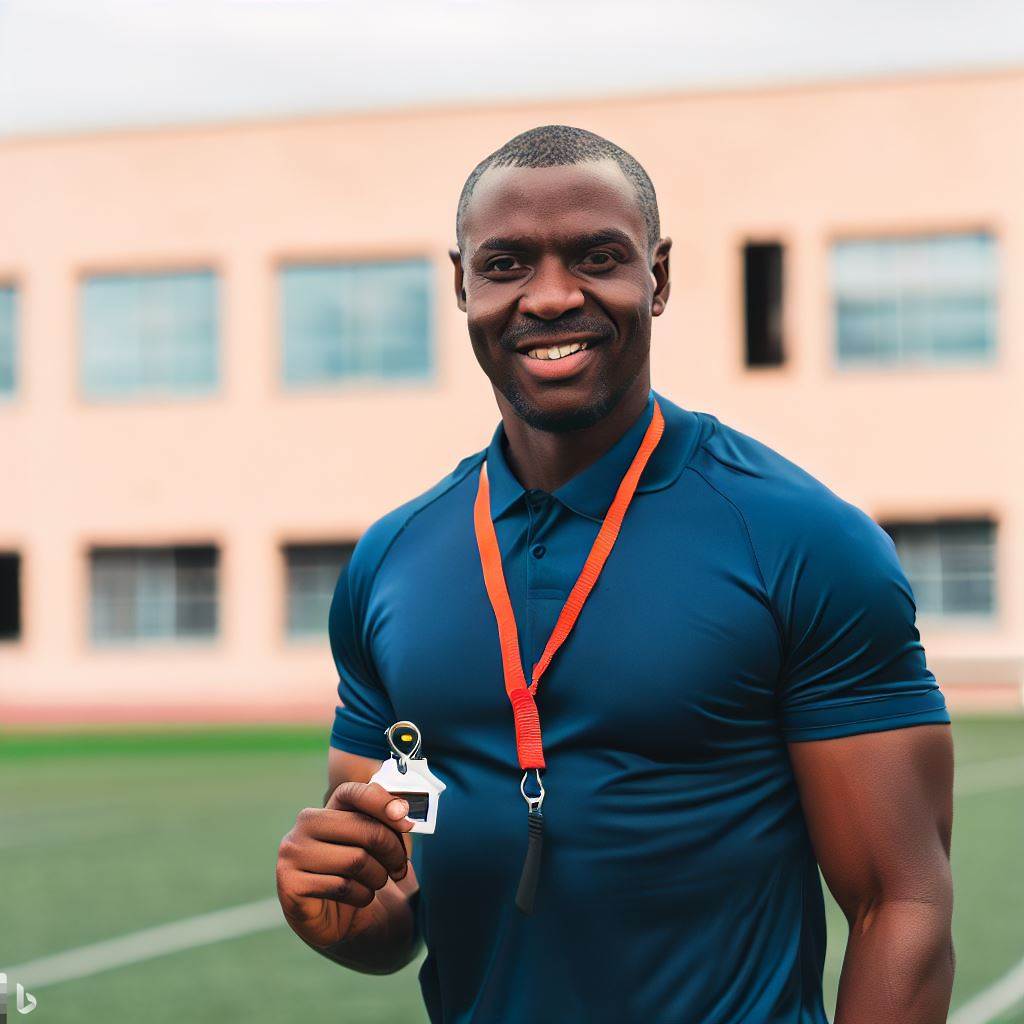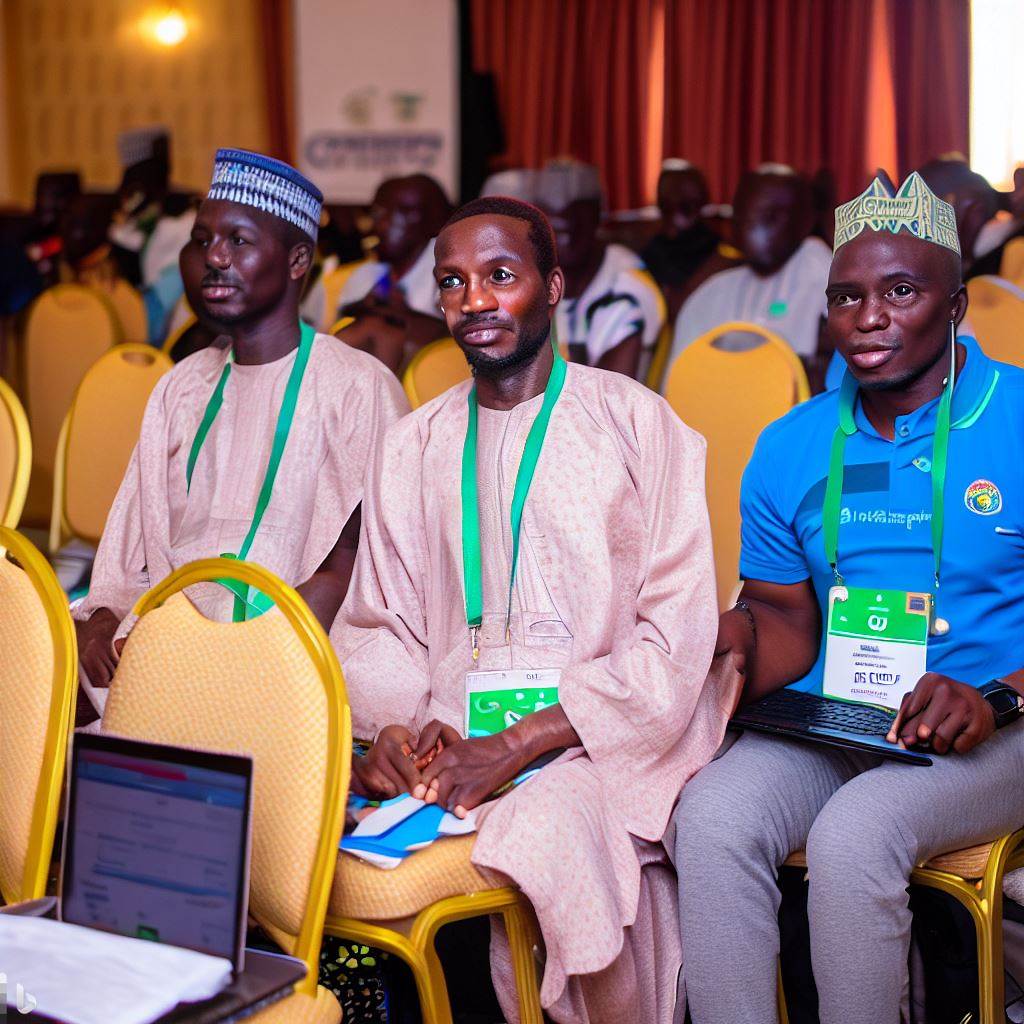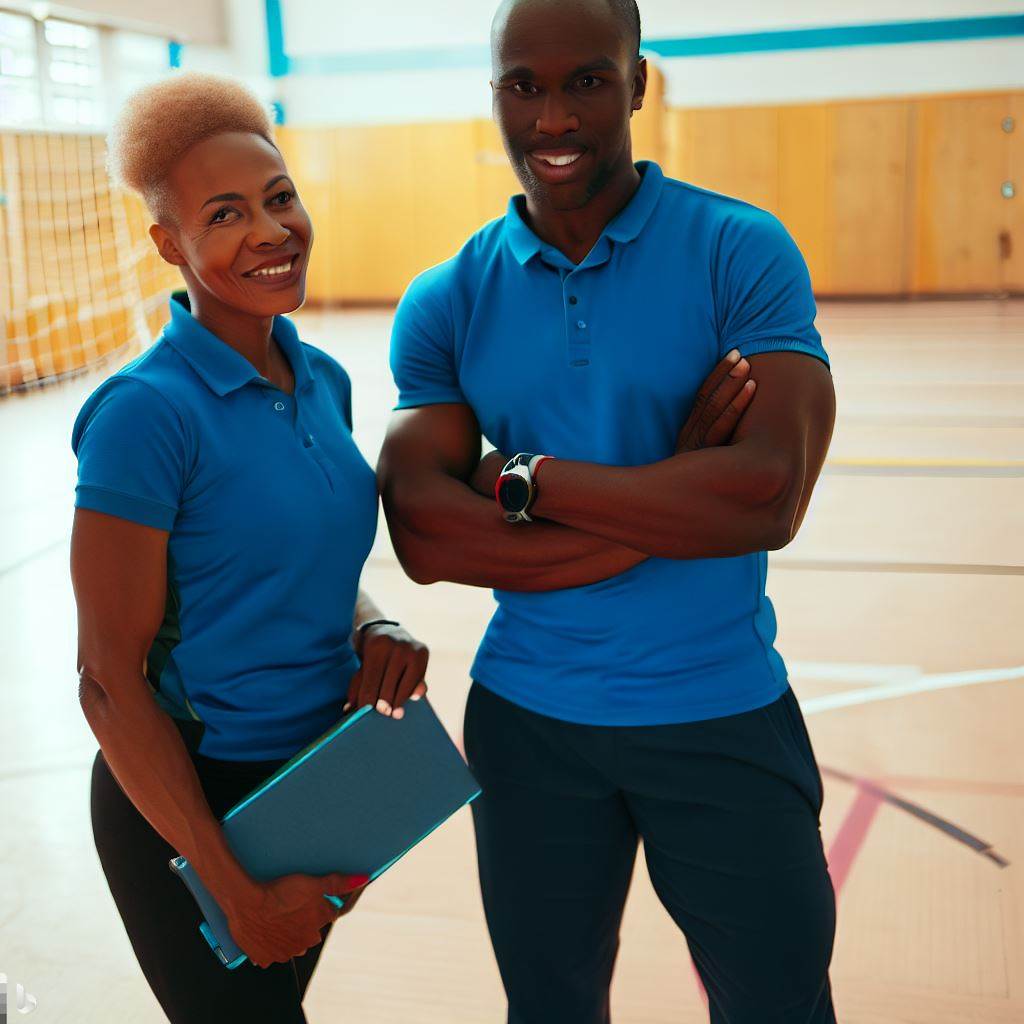Introduction
Understanding the role of a Nigerian PE teacher is crucial in comprehending the Nigerian educational system.
Did you know that Nigeria has the largest population of out-of-school children in the world? Here’s a glimpse into the life of a Nigerian PE teacher.
Understanding the role of a Nigerian PE teacher is pivotal in comprehending the intricacies of our education system.
These dedicated educators form the backbone of physical education, instilling vital life skills, health awareness, and promoting fitness among Nigerian students.
In a country where over 60 million children attend school, their influence cannot be overstated.
The Nigerian educational system grapples with challenges, but PE teachers remain steadfast in nurturing the holistic development of our youth.
Did you know that physical activity not only enhances academic performance but also combats rising health concerns like obesity and diabetes in Nigerian children?
As we delve into the life of a Nigerian PE teacher, you’ll gain a profound appreciation for their vital role in shaping the future of our nation.
Background and Qualifications
In order to become a Physical Education (PE) teacher in Nigeria, individuals must fulfill certain educational requirements and qualifications.
Here are the key aspects to consider:
Educational Requirements
Prospective PE teachers must obtain a Bachelor’s degree in Physical Education or a related field.
Qualifications
Apart from the formal education, PE teachers are required to have a teaching certification from a recognized institution.
Importance of Physical Education
Physical Education plays a vital role in the overall development of students.
- It promotes physical fitness and healthy lifestyle habits.
- It helps in developing fundamental movement skills and improving coordination.
- It teaches students the importance of teamwork, cooperation, and fair play.
- It enhances cognitive abilities and improves academic performance.
- It promotes mental well-being and helps in reducing stress.
Challenges Faced by PE Teachers
PE teachers in Nigeria encounter several challenges in their professional lives.
These include:
Transform Your Career in Nigeria
Discover unmatched expertise with our personalized Career Consulting service. Navigate Nigeria’s job market with a strategy tailored just for you.
Get Started- Limited Resources: Many schools lack proper sports facilities and equipment, making it challenging to conduct effective PE classes.
- Inadequate Support: Physical education is often deemed less important compared to academic subjects, resulting in a lack of support from school administrations and parents.
- Lack of Awareness: Some students and parents fail to appreciate the benefits of physical education, leading to a lack of motivation and participation.
- Large Class Sizes: PE teachers often have to manage large class sizes, making it difficult to provide individual attention and personalized guidance.
- Cultural Barriers: In some communities, traditional beliefs and cultural practices prioritize academic subjects over physical education.
- Gender Stereotypes: Societal norms and gender biases can limit opportunities for female students to participate in physical activities.
Despite these challenges, PE teachers in Nigeria are dedicated to providing quality physical education to their students.
They go above and beyond to ensure that students can reap the benefits of a well-rounded education.
Read: Physical Education in Nigeria: Urban vs Rural Schools
Morning Routine
- Waking up refreshed, a Nigerian PE teacher kicks off the day with energy and enthusiasm.
- After a refreshing shower, the teacher starts getting ready for the day’s activities.
- Proper grooming is essential to maintain a professional appearance as a role model for the students.
- Dressed in comfortable athletic attire, the teacher ensures everything is ready before leaving for school.
- Arriving at the school, the teacher heads straight to the staff room to gather necessary materials for the day.
- Planning and preparation are crucial, so the teacher reviews lesson plans and adjusts them if necessary.
- The teacher ensures that all equipment, such as balls, cones, and whistles, are organized and ready for use.
- Setting up the sports field or gymnasium, the teacher arranges the space to facilitate smooth activities.
- Prioritizing safety, the teacher checks for any hazards or obstacles that may be present.
- To start the day on an energetic note, the teacher leads the students through warm-up exercises.
- Warm-up exercises are essential to prepare the students’ muscles and prevent injuries during physical activities.
The morning routine of a Nigerian PE teacher is crucial for setting the stage for a productive and enjoyable day of physical education.
Through proper planning, organization, and the inclusion of warm-up exercises, the teacher ensures that the students are prepared both physically and mentally for the day’s activities.
By fostering a positive and energetic atmosphere, the teacher creates an environment that promotes teamwork, physical fitness, and a passion for sports among the students.
Read: Teaching Sports in Nigeria: A PE Instructor’s Perspective
Classroom Instruction
When it comes to classroom instruction, Nigerian PE teachers employ various teaching methods and strategies to engage and educate their students effectively.
Diverse Teaching Methods
Nigerian PE teachers use a range of teaching methods to cater to different learning styles.
They incorporate lectures, demonstrations, and practical activities to ensure comprehensive understanding.
They utilize visual aids, such as pictures and videos, to explain concepts and techniques.
By using different teaching methods, they create a dynamic learning environment.
Integration of Theoretical Lessons and Practical Activities
Nigerian PE teachers understand the importance of balancing theoretical knowledge with practical applications.
They incorporate theoretical lessons, covering topics like anatomy, physiology, and sports psychology, to provide a solid foundation for understanding sports and physical education.
These theoretical lessons are followed by practical activities, where students get the opportunity to apply their knowledge and develop their physical skills.
Promotion of Teamwork, Leadership, and Discipline
PE teachers in Nigeria play a crucial role in instilling important values like teamwork, leadership, and discipline in their students.
During team sports and group activities, they encourage students to work together, communicate effectively, and support each other.
PE teachers assign leadership roles to students, allowing them to take charge and develop their leadership skills.
Discipline is emphasized through enforcing rules, setting expectations, and ensuring students follow proper hygiene practices, attire, and sportsmanship.
PE teachers also organize team-building activities, such as group projects or problem-solving tasks, that require collaboration and decision-making.
Through these strategies, Nigerian PE teachers create an inclusive and supportive classroom environment where students learn important life skills alongside physical education.
By employing diverse teaching methods, integrating theory and practical activities, and promoting teamwork, leadership, and discipline, Nigerian PE teachers contribute to the holistic development of their students.
Read: Career Path: Sports Information Director to Media Manager

Outdoor Activities
Types of outdoor activities commonly included in the curriculum
- Football: A popular sport in Nigeria, both competitive and casual games are included in the curriculum.
- Athletics: Various track and field events are taught, such as sprinting, long jump, and shot put.
- Basketball: This sport is increasingly becoming popular among Nigerian students.
- Volleyball: Often played in schools as a team sport, enhancing teamwork and coordination.
- Handball: Encouraging strategy and physical fitness, handball is included in many school curriculums.
- Swimming: Some schools have swimming pools and offer swimming lessons as part of physical education.
- Badminton: A popular racquet sport, badminton helps improve agility, speed, and hand-eye coordination.
- Table Tennis: Also known as ping pong, it is one of the most popular indoor/outdoor recreational activities.
- Gymnastics: Basic gymnastic skills such as tumbling and balance exercises are introduced.
Facilities available for outdoor sports and physical activities
Nigerian schools commonly provide facilities to accommodate outdoor sports and physical activities:
Publish Your Professional Profile, Business or Brand
Showcase your expertise, gain trust, and boost visibility instantly on Professions.ng.
Publish Now- Playgrounds: Open spaces with dedicated areas for different sports and activities.
- Football fields: Properly maintained fields allowing students to engage in football matches.
- Athletic tracks: Tracks designed for running events, sprints, and relays.
- Basketball courts: Outdoor courts with hoops for students to practice basketball skills.
- Volleyball courts: Areas with sand or hard surfaces for playing volleyball matches.
- Swimming pools: Schools with adequate resources may offer swimming as an activity.
- Badminton and tennis courts: Dedicated areas with proper markings and nets for these sports.
- Outdoor gym equipment: Some schools have specialized equipment for outdoor workouts.
Anecdotes or examples of popular outdoor games and sports in Nigeria
In Nigeria, outdoor games and sports are an integral part of the physical education experience. Some examples include:
- Azonto Dance: A popular dance style involving intricate footwork and hip movements.
- Egbe: A traditional Yoruba game where participants attempt to throw a small iron ring into a target.
- Tug of War: A competitive game where two teams pull on opposite ends of a rope.
- Kokawa: A modified version of dodgeball, played by two teams trying to hit each other with balls.
- Ayo: A traditional game played with a wooden board and seeds, requiring strategy and counting skills.
- Kick Bottle: Players compete to kick a plastic bottle without it falling off a predetermined path.
- Eyo Masquerade Dance: A cultural dance performed during festivals, showcasing traditional attire and music.
- Sack Race: A classic game where participants hop inside a sack, racing towards the finish line.
These examples highlight the diversity and cultural significance of outdoor activities in Nigeria’s physical education curriculum.
They not only promote physical fitness but also allow students to engage in traditional games and sports that have been passed down through generations.
Read: The Impact of Sports Information Directors on Nigerian Sports
Challenges and Rewards
In Nigeria, PE teachers face numerous challenges that can hinder their ability to provide quality physical education to students.
These challenges include:
- Limited resources: Many schools lack proper equipment, such as balls, bats, or fitness equipment.
- Inadequate infrastructure: Some schools do not have designated sports facilities or suitable space for physical activities.
- Inconsistent funding: PE programs often receive insufficient financial support, limiting possibilities for improvement.
Despite these challenges, being a PE teacher in Nigeria can also be incredibly rewarding.
The satisfaction and rewards of this profession include:
- Impact on students’ well-being: PE teachers play a crucial role in promoting physical fitness and health among students.
- Positive influence: Through physical education, teachers can inspire students to adopt active and healthy lifestyles.
- Cultural exchange: Physical education allows teachers and students to explore diverse sports and traditional Nigerian activities.
Despite the challenges, many PE teachers in Nigeria have achieved remarkable success stories and positive outcomes:
- Inspiring professional athletes: Some PE teachers have mentored students who later become successful athletes on national and international levels.
- Social impact: Through initiatives and sports programs, PE teachers have helped combat social issues like drug abuse or violence.
- Community engagement: PE teachers organize events and sports competitions that bring communities together.
These success stories illustrate the game-changing impact of dedicated PE teachers in Nigeria. Although the road may have its hurdles, the rewards and positive outcomes far outweigh the challenges.
By addressing limited resources and infrastructure, governments and educational institutions can provide better support to PE teachers, ensuring the continuation of their valuable work.
Ultimately, PE teachers in Nigeria are essential contributors to the physical, mental, and emotional well-being of students, shaping a healthier and more active future for the nation.
Conclusion
This article has highlighted the life of a Nigerian PE teacher.
Throughout the aticle, we have seen the dedication and passion that these individuals have in shaping the future generations of Nigeria.
PE teachers play a significant role in the development of children and young adults.
They not only teach physical education but also impart important values such as teamwork, discipline, and resilience.
These qualities are crucial for success in life.
It is important for readers to appreciate and support the important role that PE teachers play in their communities.
By supporting PE programs in schools and encouraging children to participate in physical activities, we can help promote a healthier and more active lifestyle.
Additionally, we should acknowledge the challenges that Nigerian PE teachers face, such as limited resources and insufficient facilities.
By advocating for better funding and resources, we can ensure that these teachers have the tools they need to create a positive impact in the lives of their students.
In summary, PE teachers in Nigeria are unsung heroes who contribute to the holistic development of individuals.
Let us take a moment to acknowledge their hard work and dedication and show our support for their important role in shaping the future generations of Nigeria.




